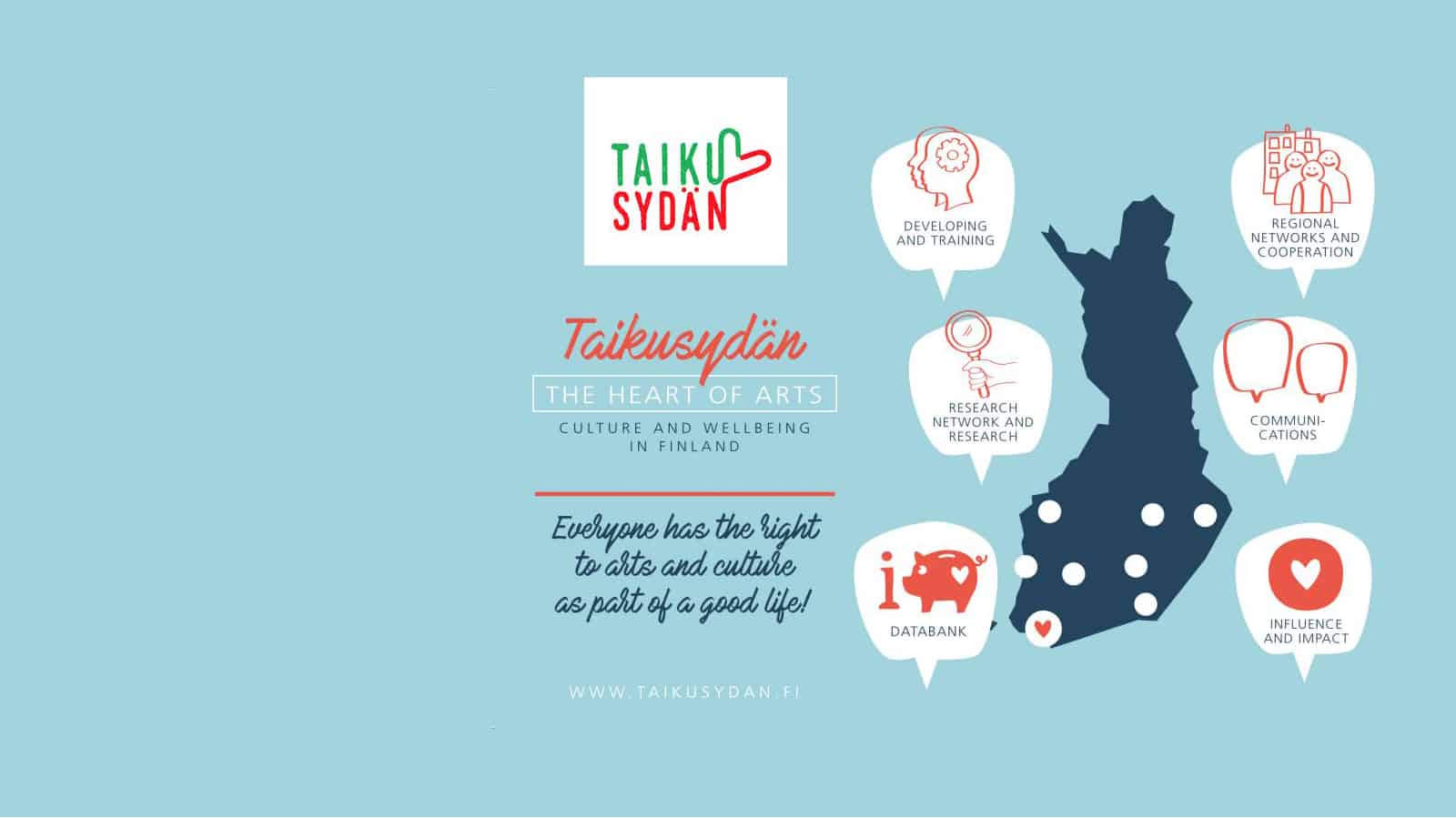The role of culture and arts in supporting good health and wellbeing is well recognised in Finland. In this article, two specialists describe how arts and culture is becoming integrated in the health and social sector.
By Päivi Nykyri (SOSTE) and Kirsi Lajunen (Arts Promotion Centre Finland)
Many studies and practical experience have shown that participation in artistic and cultural activities strengthens health and social wellbeing. The affects can be seen in many fields: participation in cultural activities will prolong life expectancy, affect experienced health status, and can be equated with health-promoting exercises. The use of art has been shown to have positive effects in preventing exclusion, in treating mental health problems, and in various recovery processes. In the workplace, art-based methods can be used to find solutions to different problems, generate new innovations, and improve wellbeing. [1] [2]
Finland – a forerunner

In Finland it is extensively recognised that art and culture can increase and support well-being, welfare and health. The Government funds and support this field in many ways. The idea is to increase the use of art and culture and make it as a permanent part of social and health care sector – especially in preventive and healing processes. The impact of culture on the promotion of well-being and health is recognised at the political, administrative, and structural level.
The collaboration between The Ministry of Education and the Ministry of Social Affairs and Health is a very important achievement which has required a lot of work over the past 20 years. Preparations that began in 2008 through the Government Policy Programme on Health Promotion lead to the two government ministries working together study the effects of art through the Arts and Culture for Well-being programme 2010-2014. The aim of the programme was to promote well-being and health by means of art and culture and to enhance inclusion at the individual, community, and societal levels.

The current finish government has an initiative to regularise art as a part of social and health sector. The goal of this project is to facilitate access to art and culture.
Everyone should have the right and equal opportunity to engage in art and participate in cultural activities. This is irrespective of where a person lives or their living or work environment, according to the extent that their desire, ability, and creative resources will allow, for the whole of their lifespan. [3] [4]
 Taikysydän – A multisectoral coordination and communication centre
Taikysydän – A multisectoral coordination and communication centre
The actions proposed by the Arts and Culture for Well-being action programme are now being promoted by Taikysydän, Taikusydän is a multisectoral coordination and communication centre for activities and research among the field of arts, culture and wellbeing in Finland. It aims to make arts and culture a permanent part of wellbeing services in Finland. Taikysydän:
- Collects and delivers knowledge about good practices, models of operation, projects and research.
- Informs and promotes multiprofessional networking between experts in the field of arts, culture and wellbeing.
- Aims to strengthen the cooperation within academic research in the field of arts, health and wellbeing and the practical work that is executed in the various projects to develop evidence-based practice.
 An example from third sector – Culture belongs to everybody
An example from third sector – Culture belongs to everybody

In Finland the ‘Culture for All Service’ (financed by the Ministry of Education and Culture) promotes cultural services that are inclusive and take diverse audiences into account. They have developed, together with organisations from the social, health, and cultural sectors, the ‘Kaikukortti Card’. The card, which is free of charge, can be used to obtain free admission tickets and get places on courses at adult educational centres in the Kaikukortti networks for free. The aim is to improve the opportunities of young people, adults and families who are financially hard pressed to participate in cultural life and engage in arts.
References
[1] Westerlund ym. 2016; Clift & Camic 2016; Lelchuk Stari coff 2004; Liikanen 2003
[3] http://minedu.fi/en/access-to-art-and-culture
[4] Cultural rights as a legitimate part of social and health care services




